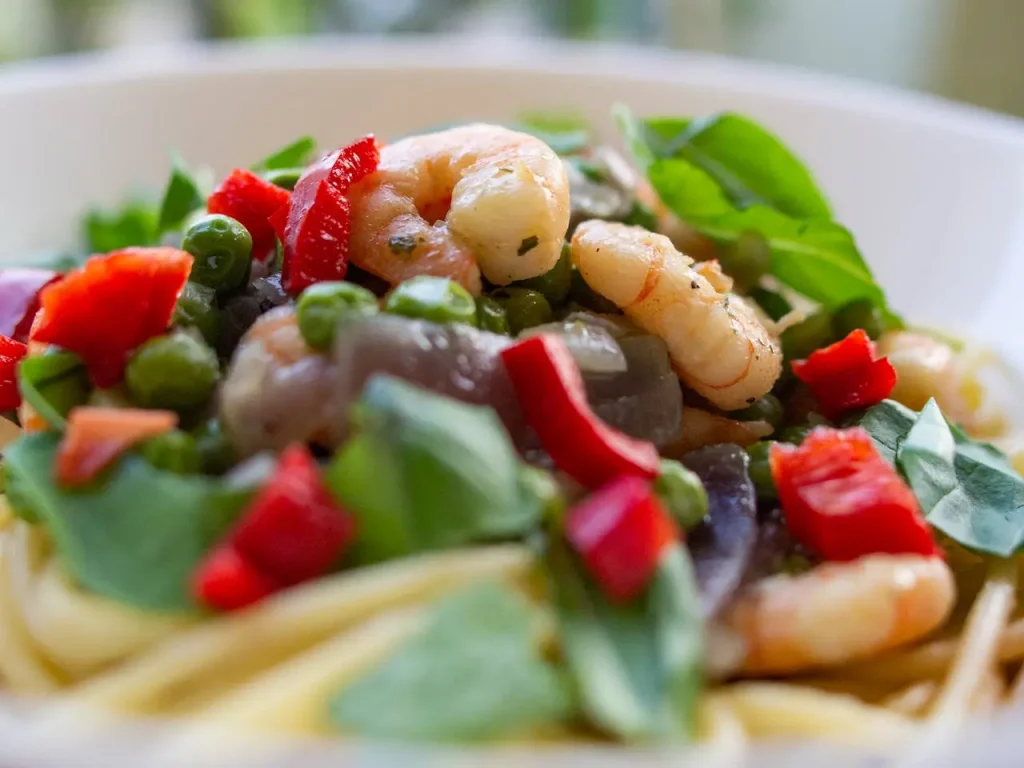Protein’s Role: Building Muscle Through Smart Nutrition

Building muscle requires more than just hitting the gym and sweating it out. It demands a smart and strategic approach to nutrition, with emphasis on one key player: protein. Protein plays a crucial role in muscle development and repair, making it a fundamental aspect of any muscle-building regimen.
But what exactly makes protein so important in muscle growth? Well, protein is composed of amino acids, which serve as the building blocks for muscle tissue. When we engage in resistance training or other forms of exercise, our muscles undergo microscopic damage. Protein swoops in to repair and rebuild these damaged muscle fibers, resulting in growth and increased strength over time.
However, not all proteins are created equal. Different sources provide different types and amounts of amino acids, and this is where smart nutrition comes into play. By incorporating a variety of high-quality protein sources into their diet, individuals can ensure they are getting a well-rounded intake of essential amino acids necessary for muscle growth.
In this article, we will explore the role of protein in building muscle and highlight some smart nutrition strategies to maximize muscle growth. Get ready to fuel your gains and unlock your muscular potential.
The Importance of Protein in Muscle Building
Protein is often referred to as the “building block” of muscle, and for good reason. When we engage in resistance training or other forms of exercise, our muscles experience microscopic damage. This damage triggers a process called muscle protein synthesis, where our bodies use amino acids from protein to repair and rebuild the damaged muscle fibers. Without a sufficient intake of protein, this repair and rebuilding process cannot occur effectively, limiting muscle growth and development.
Not only does protein contribute to muscle repair and growth, but it also helps to maintain muscle mass. As we age, our bodies naturally lose muscle mass, a process known as sarcopenia. However, research has shown that a higher protein intake can help prevent or slow down this muscle loss, preserving strength and functionality as we get older.
How Protein Aids in Muscle Growth
Protein’s role in muscle growth goes beyond simply repairing and rebuilding damaged muscle fibers. It also plays a key role in promoting anabolism, the process of building new muscle tissue. This is achieved through the stimulation of muscle protein synthesis, the rate at which our bodies produce new muscle proteins.
Resistance training, combined with an adequate protein intake, triggers a cascade of events that lead to increased muscle protein synthesis. This process is influenced by various factors, including the type and amount of protein consumed, as well as the timing of protein intake. By optimizing these factors, individuals can enhance muscle protein synthesis and maximize muscle growth.
Protein Requirements for Muscle Building
Determining the optimal protein intake for muscle building can be a bit challenging, as individual needs can vary based on factors such as age, sex, body composition, and activity level. However, general recommendations suggest that individuals looking to build muscle should aim for a daily protein intake of 1.6 to 2.2 grams per kilogram of body weight.
It’s important to note that protein requirements may be higher for individuals who are in a calorie deficit or engaging in intense training. In these cases, protein intake may need to be increased to support muscle growth and recovery.
Dietary Sources of Protein for Muscle Building
Now that we understand the importance of protein in muscle building, let’s explore some of the best dietary sources of protein. Different sources provide different types and amounts of amino acids, so it’s important to incorporate a variety of high-quality protein sources into your diet.
Lean meats such as chicken, turkey, and lean cuts of beef are excellent sources of protein. They are not only rich in essential amino acids but also low in fat, making them ideal for muscle building. Other animal-based sources of protein include fish, eggs, and dairy products like Greek yogurt and cottage cheese.
For those following a vegetarian or vegan diet, plant-based protein sources can still provide the necessary amino acids for muscle growth. Legumes, such as lentils, chickpeas, and black beans, are high in both protein and fiber, making them a nutritious choice. Additionally, tofu, tempeh, and seitan are plant-based protein options that can be incorporated into meals.
Timing Protein Intake for Optimal Muscle Growth
In addition to the quantity and quality of protein consumed, the timing of protein intake can also influence muscle growth. Research suggests that consuming protein within the post-workout window, typically within 30 minutes to an hour after exercise, can enhance muscle protein synthesis and promote muscle recovery.
This post-workout period is known as the “anabolic window,” where our bodies are primed to take in nutrients and put them to use for muscle repair and growth. Consuming a protein-rich meal or snack during this time can help maximize the benefits of resistance training and promote muscle building.
Protein Supplements for Muscle Building
While it’s possible to meet protein needs through whole foods alone, protein supplements can be a convenient and effective way to ensure an adequate intake. Protein powders, such as whey, casein, and plant-based options like pea and soy protein, can be easily mixed into shakes or added to recipes to boost protein content.
Protein supplements can be particularly beneficial for individuals who have higher protein requirements, struggle to meet their protein needs through food alone, or have specific dietary restrictions. However, it’s important to remember that supplements should not replace whole foods in the diet but rather complement them.
Common Misconceptions about Protein and Muscle Building
Despite the widely recognized importance of protein in muscle building, there are still some common misconceptions surrounding this nutrient. One of the most prevalent misconceptions is that consuming excessive amounts of protein will automatically lead to increased muscle growth. However, research suggests that there is a limit to the amount of protein our bodies can effectively utilize for muscle synthesis, typically around 0.8 to 1 gram per pound of body weight.
Another misconception is that protein is only necessary for those looking to bulk up or gain muscle mass. In reality, protein is essential for everyone, regardless of their fitness goals. It plays a vital role in various physiological processes and is necessary for overall health and well-being.
Balancing Protein Intake with Other Nutrients for Muscle Growth
While protein is a key player in muscle building, it’s important to remember that it’s not the only nutrient necessary for optimal muscle growth. A well-rounded diet that includes adequate amounts of carbohydrates and healthy fats is essential for providing the energy needed for intense workouts and supporting overall health.
Carbohydrates, in particular, are crucial for replenishing glycogen stores, the primary fuel source for exercise. Including complex carbohydrates like whole grains, fruits, and vegetables in your diet can ensure a steady supply of energy for workouts and aid in muscle recovery.
Healthy fats, such as those found in avocados, nuts, and olive oil, are also important for muscle growth. They provide essential fatty acids that support hormone production, nutrient absorption, and inflammation regulation, all of which are vital for muscle development.
Sample Meal Plan for Muscle Building
To give you an idea of how to incorporate protein and other nutrients into your diet for muscle building, here’s a sample meal plan:
Breakfast: Scrambled eggs with spinach and whole-grain toast
Snack: Greek yogurt with berries and almonds
Lunch: Grilled chicken breast with quinoa and roasted vegetables
Snack: Protein shake with banana and almond butter
Dinner: Baked salmon with sweet potato and steamed broccoli
Snack: Cottage cheese with pineapple chunks and walnuts
Remember to adjust portion sizes and calorie intake based on your individual needs and goals. Consulting with a registered dietitian or nutritionist can provide personalized guidance and help optimize your meal plan for muscle growth.
Conclusion: Achieving Muscle Growth Through Smart Nutrition
Protein is a vital component of any muscle-building regimen. It serves as the building block for muscle tissue, aiding in repair, growth, and maintenance. By incorporating a variety of high-quality protein sources into your diet and timing your protein intake strategically, you can optimize muscle protein synthesis and maximize muscle growth.
However, it’s important to remember that protein is just one piece of the puzzle. Balancing protein intake with other nutrients, such as carbohydrates and healthy fats, is crucial for fueling workouts, supporting overall health, and achieving optimal muscle growth.
So, whether you’re a serious bodybuilder or simply looking to tone and strengthen your muscles, don’t overlook the power of protein and smart nutrition. By fueling your gains with the right nutrients, you can unlock your muscular potential and achieve the results you desire.


